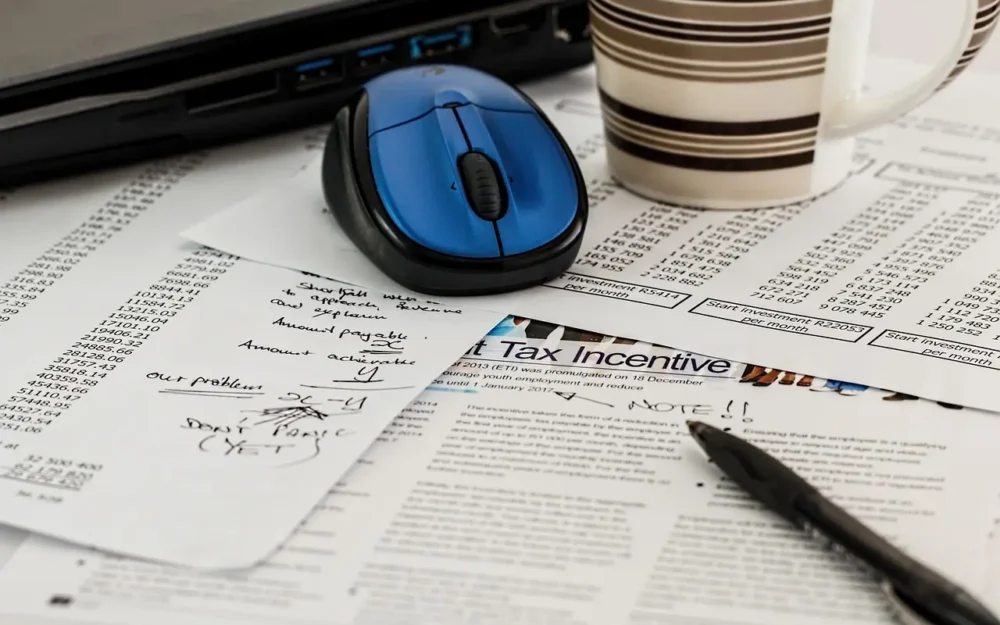Does Texas have state income tax?
No, Texas does not have a state income tax.
Texas remains one of nine states that do not impose a personal state income tax. This provides a major financial advantage for individuals and families, particularly high earners and retirees with fixed incomes. However, the absence of state income tax means the state must generate revenue through alternative channels, often resulting in higher property and sales taxes.
To understand the complete tax impact, Texans should still refer to federal tax brackets. As of 2025, federal income tax brackets range from 10% to 37%, with income thresholds adjusted for inflation. These rates apply uniformly across the country, including Texas.
Tax benefits and disadvantages of living in Texas
Sales and use tax
Texas imposes a state-level sales tax of 6.25%. Local jurisdictions (cities, counties, special-purpose districts) may levy additional sales taxes up to 2%, bringing the maximum combined rate to 8.25%.
Certain goods and services are exempt from Texas sales tax, such as most grocery foods, prescription medications, and some medical supplies. However, items like prepared food, non-prescription medicine, and digital goods are typically taxable. Texans should pay close attention to local tax rates, which vary significantly by location.
Property taxes
Property taxes in Texas are among the highest in the nation. This is primarily because local governments—school districts, municipalities, and counties—rely heavily on property taxes to fund services.
There is no state-level property tax in Texas. Instead, local appraisal districts determine property values annually. Texas offers several exemptions, including the homestead exemption, which can lower the taxable value of a primary residence. Seniors, veterans, and disabled homeowners may qualify for additional exemptions.
Estate and inheritance taxes
Texas does not impose estate or inheritance taxes, which can be beneficial for wealth transfer planning. However, estates may still be subject to the federal estate tax, which applies to estates valued over $13.61 million in 2025.
Business taxes
Texas businesses benefit from a relatively simple tax structure. The primary business tax is the Texas franchise tax, also known as the margin tax. It applies to most business entities with gross receipts over a certain threshold (currently $1.23 million).
Rates vary based on business type: 0.375% for retailers and wholesalers, and 0.75% for other businesses. Sole proprietors and certain passive income businesses are exempt. Businesses are also responsible for collecting sales tax, filing use tax, and adhering to local regulatory fees.
Motor vehicle taxes
Texas imposes a 6.25% motor vehicle sales tax on the purchase of a new or used vehicle. Private party sales may be subject to the same rate, with the vehicle’s standard presumptive value (SPV) used to calculate tax in underreported transactions.
In addition to the sales tax, residents must pay title and registration fees, which vary by county.
Fuel taxes
Fuel tax in Texas is 20 cents per gallon for gasoline and diesel, unchanged since 1991. This tax funds road maintenance and transportation infrastructure. The federal fuel tax adds another 18.4 cents per gallon for gasoline and 24.4 cents per gallon for diesel, resulting in a combined burden of nearly 40 cents per gallon.
Do Texans pay more or less taxes compared to other states?
For residents
While Texans save on state income taxes, they often pay more in property and sales taxes. According to recent reports, Texas ranks in the top 10 for overall tax burden when property and consumption taxes are included. However, the net effect varies based on income level, homeownership status, and spending habits.
For renters
Renters in Texas indirectly contribute to high property taxes through rent payments, as landlords typically pass on a portion of their tax liability. However, renters avoid direct property tax payments and may benefit more from Texas’s no-income-tax advantage.
For businesses
Texas is often ranked as a business-friendly state due to its lack of corporate income tax and streamlined franchise tax system. However, businesses with high property values or extensive retail operations may face a significant local tax burden.
Common mistakes when filing taxes in Texas
Overlooking sales taxes
Many individuals and businesses fail to account for use tax obligations when buying out-of-state goods for use in Texas. This is a common audit trigger.
Incorrect personal information
Misspellings, outdated addresses, and mismatched Social Security numbers can delay returns and refund processing. Always verify all identification information before submission.
Math errors
Whether filing manually or electronically, calculation errors can result in underpayment or overpayment. Use reputable software or consult a tax professional.
Overlooking deductions and credits
Homeowners, parents, students, and small business owners frequently miss deductions or credits for which they qualify. This oversight can result in hundreds or thousands of dollars in lost savings. For example, the Inflation Reduction Act offers substantial tax credits and rebates for energy-efficient home upgrades, such as insulation, heat pumps, and solar panels, providing an opportunity to lower utility costs, reduce fossil fuel reliance, and promote sustainable living.
Missing deadlines
The federal and state tax filing deadline for 2025 is April 15. Failure to file or pay on time results in penalties and interest. Request extensions proactively if needed.
Not retaining proper documents
Keep copies of W-2s, 1099s, receipts, and prior returns for at least three to seven years. Documentation is essential in the case of an audit.
Ignoring IRS correspondence
Do not ignore letters or notices from the IRS or the Texas Comptroller’s office. Prompt responses can prevent escalated penalties and liens.
Misunderstanding vehicle-related fees
New residents often confuse title transfer, inspection, and registration fees. Each has a distinct requirement and due date. Review the Texas DMV website or consult a local tax office.
Assuming no state tax filing is required at all
While Texas does not collect state income tax, certain business and use taxes still require periodic filing. Stay compliant with sales, franchise, and motor vehicle taxes to avoid penalties.
Navigating Texas taxes
Navigating the tax landscape in Texas can be complex, but understanding the basics is critical for residents, renters, and businesses alike. At BKV Energy, we believe that knowledge empowers smarter decisions—whether about energy, finances, or lifestyle. Stay informed and explore more of our blogs about Texas living to make the most of your experience in the Lone Star State.
If you’re considering a move to Texas, we hope this article helped shed some light on the tax situation in the state. Another important topic to cover for those moving to Texas? Shopping for an electricity provider. Check out this guide to finding the best energy provider for your needs.
Graham Lumley, Digital Marketing Manager at BKV Energy, leads digital and traditional marketing strategies, focusing on educating Texans about the state's deregulated energy market. With over 8 years of marketing experience, he creates content to help consumers understand and save on their energy bills, bringing a fresh and dynamic approach to the industry.
Related articles
Living in Texas
How to Support Texas Flooding Disaster Recovery
< 1 minute readThe BKV Energy team’s hearts go out to all those impacted by the recent severe flooding across Central Texas. As communities navigate rescue, evacuation, and recovery, we’re especially grateful for the efforts of the first responders, emergency crews, and volunteers. If you’re looking for ways to lend a hand during…



